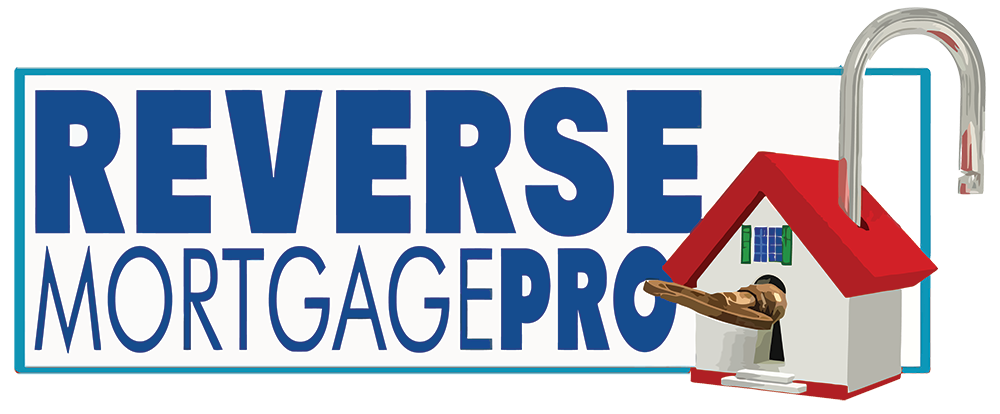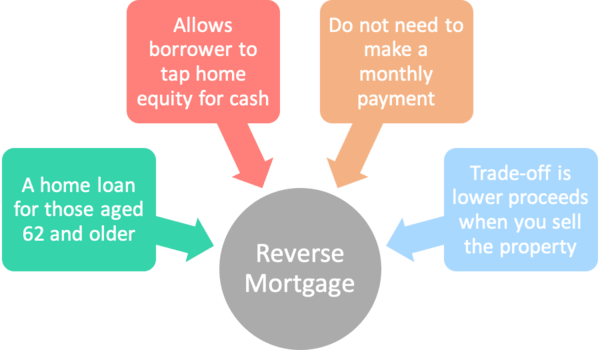How to Purchase Reverse Mortgage and Use It to Fund Your Future
How to Purchase Reverse Mortgage and Use It to Fund Your Future
Blog Article
Empower Your Retired Life: The Smart Method to Acquisition a Reverse Mortgage
As retired life techniques, many people seek effective strategies to improve their financial freedom and health. Amongst these methods, a reverse home mortgage becomes a viable choice for homeowners aged 62 and older, permitting them to use their home equity without the need of regular monthly settlements. While this economic tool provides a number of advantages, consisting of enhanced cash circulation and the potential to cover crucial costs, it is vital to recognize the complexities of the application process and key factors to consider involved. The next actions may disclose just how you can make a knowledgeable choice that could considerably affect your retirement years.
Understanding Reverse Mortgages
Recognizing reverse home loans can be critical for homeowners seeking financial adaptability in retired life. A reverse home mortgage is a monetary product that permits qualified homeowners, normally aged 62 and older, to transform a part of their home equity right into cash money. Unlike traditional home mortgages, where customers make month-to-month payments to a loan provider, reverse home mortgages make it possible for homeowners to receive payments or a lump sum while preserving possession of their home.
The amount readily available through a reverse mortgage depends upon numerous factors, including the property owner's age, the home's worth, and current rate of interest. Notably, the loan does not have actually to be paid back till the property owner markets the home, relocates out, or passes away.
It is crucial for potential borrowers to comprehend the implications of this financial product, consisting of the effect on estate inheritance, tax considerations, and continuous responsibilities connected to residential property upkeep, tax obligations, and insurance. In addition, counseling sessions with licensed experts are usually needed to make sure that customers completely understand the terms of the financing. Generally, a complete understanding of reverse home mortgages can encourage house owners to make educated choices about their monetary future in retirement.
Benefits of a Reverse Home Loan
A reverse home mortgage offers several engaging benefits for qualified property owners, especially those in retired life. This economic tool permits senior citizens to convert a part of their home equity right into cash, providing essential funds without the demand for regular monthly home mortgage payments. The cash obtained can be made use of for numerous purposes, such as covering medical expenses, making home improvements, or supplementing retired life revenue, hence enhancing overall monetary flexibility.
One considerable advantage of a reverse mortgage is that it does not require payment until the house owner moves out, sells the home, or passes away - purchase reverse mortgage. This function allows senior citizens to keep their way of life and fulfill unexpected costs without the problem of regular monthly payments. Furthermore, the funds gotten are generally tax-free, allowing house owners to use their money without concern of tax obligation ramifications
In addition, a reverse mortgage can provide satisfaction, knowing that it can work as a monetary safeguard during difficult times. Home owners additionally retain possession of their homes, ensuring they can continue staying in a familiar atmosphere. Inevitably, a reverse home loan can be a tactical financial source, equipping retired people to handle their financial resources properly while enjoying their gold years.
The Application Process
Browsing the application procedure for a reverse mortgage is an important step for home owners considering this financial choice. The initial phase entails assessing eligibility, which generally calls for the home owner to be a minimum of 62 years of ages, very own the property outright or have a low home mortgage balance, and inhabit the home as their key house.
When eligibility is confirmed, house owners should undergo a counseling session with a HUD-approved therapist. This session makes certain that they completely understand the implications of a reverse home mortgage, including the responsibilities involved. purchase reverse mortgage. After completing counseling, applicants can continue to gather required documents, including evidence of revenue, properties, and the home's worth
The following action entails submitting an application to a lending institution, that will assess the monetary and residential property certifications. An assessment of the home will certainly also be conducted to determine its market value. If accepted, the lending institution will offer funding terms, which must be examined meticulously.
Upon acceptance, the closing procedure complies with, where final records are signed, and funds are paid out. Comprehending each stage of this application process can dramatically boost the home owner's confidence and decision-making concerning reverse home loans.

Secret Considerations Before Investing In
Getting a reverse home mortgage is a substantial economic choice that requires mindful consideration of numerous vital variables. First, recognizing your qualification is vital. House owners have to go to least 62 years old, and the home must be their key house. Examining your economic demands and objectives is just as vital; determine whether a reverse home mortgage lines up with your lasting plans.

A reverse home loan can impact your qualification for specific federal government benefits, such as Medicaid. By completely evaluating these considerations, you can make a much more educated decision regarding whether a reverse mortgage is the best monetary technique for your retirement.
Taking advantage of Your Funds
Once you have protected a reverse home mortgage, efficiently handling the funds comes to be a top priority. The flexibility of a reverse home loan allows home owners to use the funds in numerous ways, however calculated preparation is necessary to maximize their advantages.
One vital approach is to produce a budget that describes your monthly expenses and financial objectives. By identifying required expenses such as healthcare, real estate tax, and home maintenance, you can allocate funds as necessary to guarantee long-lasting sustainability. In addition, consider using a portion of the funds for financial investments that can generate revenue or value over time, such as mutual funds or dividend-paying supplies.
One more vital element is to keep a reserve. Alloting a book from your reverse home mortgage can help cover unforeseen prices, providing comfort and economic stability. In addition, talk to a monetary consultant to check out feasible tax implications and just how Full Report to incorporate reverse home mortgage funds right into your overall retired life technique.
Eventually, sensible administration of reverse home mortgage funds can improve your economic safety, enabling you to appreciate your retirement years without the stress of economic uncertainty. Careful planning and informed decision-making will make sure that your funds function properly for you.
Conclusion
In conclusion, a reverse home mortgage presents a feasible monetary technique for seniors looking for to enhance their retirement experience. By about his converting home equity into available funds, individuals can attend to crucial costs and secure additional financial resources without sustaining monthly payments.
Recognizing reverse mortgages can be important for property owners seeking economic flexibility in retired life. A reverse home mortgage is an economic product that permits eligible property owners, usually aged 62 and older, to convert a section of their home equity into cash. Unlike conventional home mortgages, where customers make month-to-month payments to a lending institution, reverse home loans enable house owners to obtain settlements or a swelling amount while keeping possession of their residential or commercial property.
In general, a comprehensive understanding of reverse mortgages can equip house owners to make educated decisions regarding their financial future in retired life.
Seek advice from with a monetary consultant to discover possible tax obligation effects and just how to incorporate reverse home loan funds right into your total retirement strategy.
Report this page